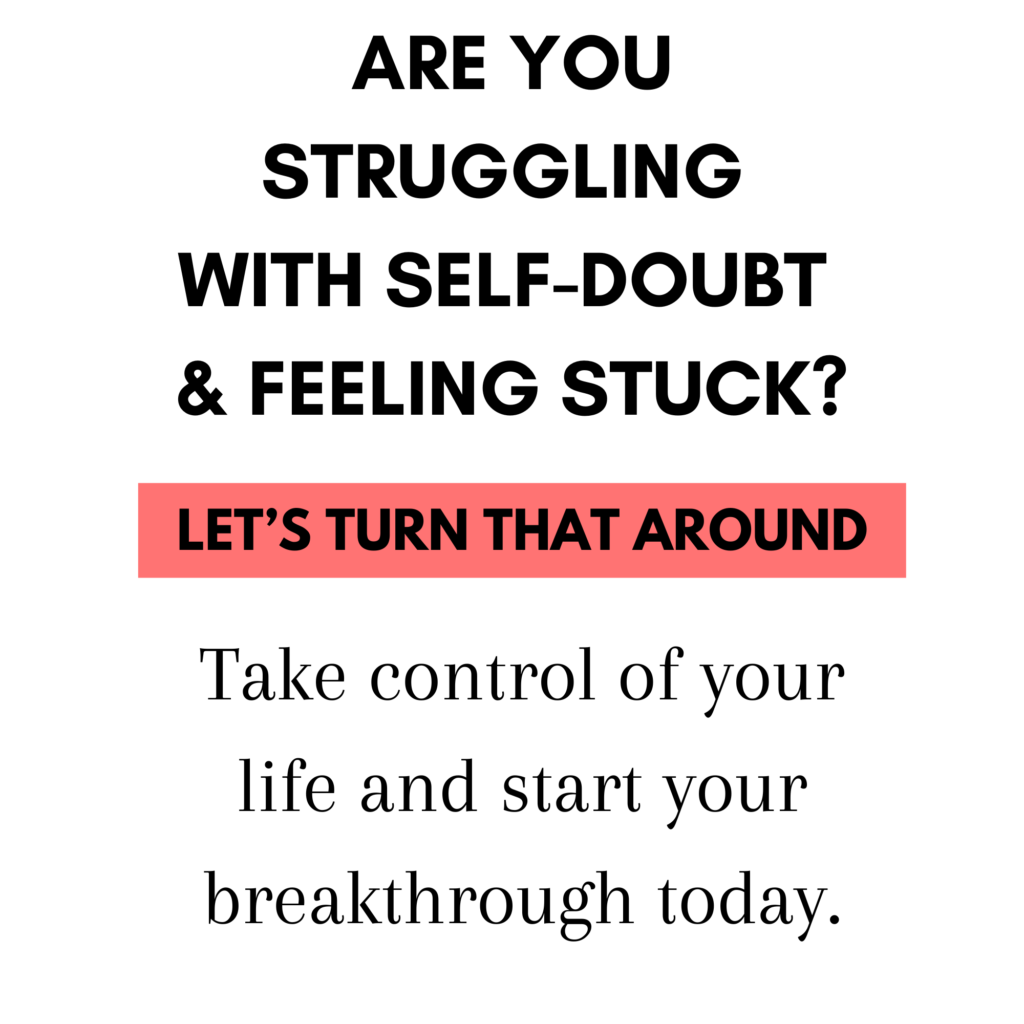Self-trust is a major factor in an individual’s success in their life, it impacts the way someone takes risks, how they feel about their ability to take action & accomplish goals.
In this blog, we are focusing on all the tips, tools, and reasons why it’s important to build your trust and how to find more awareness around doing tasks that allow you to trust yourself more. Self-trust, helps you take more risks, the more risks you take the more confidence you will be in achieving the goals that you set out to achieve.
Here at The You Series, we not only have a program that focuses on the fundamentals of getting out of your own way, gaining more confidence but we do work on decreasing fear and building self-trust. So let’s talk about what works in raising your belief-ability in yourself.
1. Defining self-trust together:
I enjoy looking up words when I discuss them with clients. This not only helps us all get on the same page but I have found that definitions always have something to teach us about the journey to acquiring the results inside of the word in focus. Diving into definitions is a powerful exercise. With that being said we are going to look at the definition of self-trust. Just remember, words have power when they’re spoken. For example, if you don’t know what what you are saying fundamentally means. You may be asking or communicating for the wrong things in your life without even realizing it.
The definition of a certain word also provides us, with the essential lessons on how to achieve what you’re looking for.
Self-trust is the perfect example of this and I’m going to show you how to extract what you need from the definition of this word.
Let’s look at what self-trust brings intentionally in our lives through its meaning.
Self-Trust’s definition & Extracting the value from it
Defenition of Self-Trust: Trust in one’s own abilities, qualities, or judgment; self-confidence.
Wow, there is so much value in this definition. let’s break down what you need to build self-trust:
- Trust your abilities
- To trust your qualities
- Having the ability to trust your judgment
- Lastly, to trust in your self-confidence
Let’s look at trusting your abilities first:
- The ability to do what you say you’ll do.
- Your ability to hold to your values
- Being able to stand with your standard.
- Trusting in your skill ability.
- A huge one is also your solution-finding ability.
2. Identifying why you lack self-trust:
Saying things that you don’t do:
We all do it at one point or another. Committing to something, and agreeing to dong it, is incredibly easy but following through is much more of a challenge. It’s easy to say you’re going to do something, however, it’s far more challenging to follow through on that commitment.
Some people are chronic starters and poor finishers when it comes to holding true to their word in life. They often struggle with their confidence furthermore the ability to take risks in their lives. In conclusion, this cycle often leaves them feeling like failures. Lowering their level of self-trust.
Here is a list of what could be holding you back from following through on your commitment:
- Fear of the success inside of completing the commitment.
- Limiting beliefs around your ability to complete your commitment.
- A lack of self-awareness and your behavior in general.
- You don’t feel like you are worth it or enough.
- Not taking any kind of action.
- Not being in tune with the small steps that need to be completed inside the commitment.
- Fear of failing at the commitment you made. Sometimes it’s easier to do nothing and when doing nothing, it will ensure you don’t fail.
Showing up inauthentically:
Showing up inauthentically is something that happens for many people without them even having a lot of awareness around what being inauthentic even is.
Firstly, living authentically and being authentic to yourself means you are genuine about who you really are not who you want to show other people that you are. There is a huge difference. The second aspect of authenticity is that you are focused on staying true to your inner guide, your values & your standards. This will help you get into alignment so that you can show up authentically.
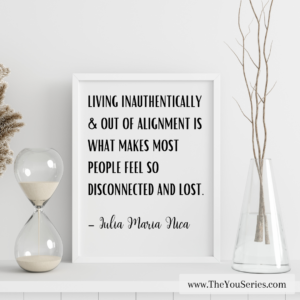
Here is what showing up inauthentically can look like:
- Your friend asks you how your week was & you reply great when you know that it’s probably been the hardest week of the year.
- Someone asks you if you’re upset, you are but instead, you reply “I’m fine” though they can sense you’re not giving them much to work with.
- Another form of inauthenticity is someone who tries to show up as something they are not. For example: buying a car you really cannot afford. Spending more than you should be when you’re going out with friends. Not telling the truth about your skillset.
- This may not be you, but lying or telling white lies is also a common way that people become inauthentic. Cheating on your partner, backstabbing friends then denying it. Creating drama & acting like it’s not your fault.
Being inauthentic about you and what’s really going on has a negative impact on the level of self-trust that you have for yourself.
Feel like you have to hide who you are:
Not feeling good about where you are at, what you are up to, or the lack of what you are up to? This often creates the lack of desire to tell people less about yourself or even hide pieces of yourself from your community.
Feeling like you have to hide things about yourself is a major hit to your confidence level.
You don’t feel good about what you’ve accomplished so far in your life:
Sometimes looking back doesn’t give you a feeling of confidence or self-trust because you doubt the path you’ve walked. You are still experiencing major regret about your past choices. You may feel like you still resent someone that was a part of your past. Or perhaps you’re still holding on to what could’ve been.
This is one big contributor to experiences of a lack of confidence or self-trust as well. We will cover solutions further down.
You don’t know what your values are:
What do you value? How is it important that you treat yourself and others?
Most people have values but they’re unclear about them. While they’re unclear about their values they tend to make decisions and make choices that may steer them further away from what matters to them.
We talk a lot about core values here at The You Series. That’s one of our priorities because it’s one of the best ways to gauge if you’re in alignment with your true self and taking action that’s in alignment with what’s most important to you.
You worry a lot about life, experience a lot of fear about the future:
Overthinking a lot lately? You tend to find yourself going down the rabbit hole of “what ifs” fearing all the bad things that could happen.
Fear-based thoughts are actually the result of a huge lack of trust in life, yourself, and your surrounding. It’s often led by a big list of things that have gone wrong that collectively become your “I can’t do it” story or your “I’m not good enough” story. Fear actually happens to protect us from danger. What happens is that most people get emotionally sucked in irrational fear that feels so real. These are patterns of thinking that are created and built over long periods of repetition. Do not worry, you can change these patterns & turn these fears into thoughts that serve you.
Think about the past too much. Experiencing constant regret, anger:
Obsessively thinking about the past too much, can create feelings of depression. It can amplify feelings of regret, sometimes anger towards yourself or other people but one of the biggest reasons why you may sometimes get sucked into the past so often is that there is a huge lack of solutions.
You haven’t focused on doing the core work around the past problem asking yourself:
- What have I learned?
- Is there a shift I can make as a result of this past situation?
- What’s the solution to removing this past problem and learning my lesson so that I don’t have to relive it?
Avoid problems in your life instead of confronting them:
Escaping issues that come up in your life have a stacking effect. Often times what happens is when you don’t deal with what comes up the first time the problem will re-manifest itself in other things in your life. These problems usually show up in different forms so it’s often hard for you to pinpoint why it’s coming up at first glance.
Most of the time when this happens, you’re in avoidance of dealing with the problem at the source. There is usually a lesson that you’re missing out on learning.
Life has a funny way of getting our attention & many times we can be in complete resistance to what life is trying to teach us.
Have really negative & doubtful conversations with yourself:
The choice of words that you choose to speak to yourself is a direct sign of the level of trust that you have in yourself. The first set of phrases that I’ll share with you below is very negative. They don’t feel good while reading them, they decrease how you feel as you read them. Whereas the second set of statements I’ll share elevates your mood. The powerful, kind, and positive words make you feel better about yourself. The words also display a higher level of self-trust and confidence.
What the doubter in you says:
- “You can’t do anything right”
- “You aren’t good enough.”
- “You’re always falling short.”
- “You’re late.”
- “You are always losing.”
- “You really suck at this.”
- “You’re gaining weight.”
What the most confident, self-trusting you says:
- “I can do anything you set your mind to.”
- “I’m good enough.”
- “I do enough.”
- “I am right where I need to be.”
- “I’m always winning, the win is on its way.”
- “I’m getting better & better every day.”
- “I am ready to release the fat on my body, I am safe and strong.”
Are you new here?
I also have the following content that focuses on helping you get out of your own way, build confidence & guide you towards taking effortless action:
- CORE VALUES: Learn More About Your Personal Core Values
- Manifestation Is Logical, Not Magical. You Already Do It Daily On Autopilot!
- Defining What It Means To Take Responsibility In Your Life
- Top Tips On How To Successfully Start Setting Intentions That Work For You
- Reduce Regret And Turn Your Past Into Powerful Lessons Learned In Life
- Read These Deep Quotes to Change Your Life
- What is Self-Love and Everything You Need to Know to Improve Self-Love
Build More Confidence:
- How Taking 100% Responsibility Will Give You More Confidence
- The Ultimate Guide To Feeling Confident About Who You Are!
Build Better Relationships:
3. How to build self-trust:
Only commit to things that you plan to complete:
Commitment and the ability to follow through on your word and build trust with yourself is a huge self-trust booster. How you do everything matters. It’s not about being perfect but about being consistent in cleaning up where you make mistakes. This includes cleaning up where you’ve lacked in keeping your commitments.
Find more self-awareness, start to look within when conflict arises:
Self-awareness is the key to building more self-trust as well as confidence. This means that you’re practicing the ability to look within when conflict arises and you’re moving past the need to blame other people.
A huge part of having self-awareness is that your motivation to take responsibility will increase as well which will allow you to feel like you stand in your power more.
People who are self-aware are more sure of themselves and in a good way lack the need to doubt themselves as well.
Instead of criticizing yourself begin to acknowledge what you are good at:
Are you a “Heck ya, I can do it!” type of person, or are you “Oh crap, what was 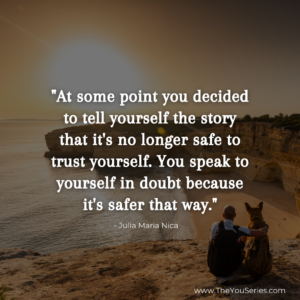 thinking habits. The first individual often assures themselves that in fact, they can do it. Even if they’ve recently felt like they’ve failed. Whereas the second individual continues to speak words of doubt, words that will never motivate them.
thinking habits. The first individual often assures themselves that in fact, they can do it. Even if they’ve recently felt like they’ve failed. Whereas the second individual continues to speak words of doubt, words that will never motivate them.
I think I can’t do this.” This is an example of two completely opposite
It is in fact, all about how you talk to yourself… when something occurs start to notice how you talk to yourself about the event.
In contrast, also look at what you can improve on as well: (See this as a power creating activity)
The thing about understanding that you can be better is that there is no cap or cut-off for your potential. You are where you are not but the secret is you’re great today & you can be EVEN BETTER tomorrow. The opportunity this creates for us is unlimited. You can be, do and become anyone you desire to.
Did you have a crappy day today?
That’s okay, tomorrow will be even better. What can you gather from what didn’t work today & turn it into what CAN work tomorrow?
I’ve seen so many clients get bogged down about where they’re at that they’re missing out on actualizing the power they already have inside themselves. You can be better & that’s a good thing.
The other thing I am going to say is to drop the need to be perfect. You don’t need to be perfect. Perfection is one of the most constricting desires. Not only can we not control life itself but the world isn’t a person so we are asking for something that doesn’t exist. Accepting the imperfect flaws in life will bring you so much peace.
I have found that people who lack self-trust & feel more instability in their life also desire a perfect standard. They never quite make the cut & nobody else in their life does. This belief decreases confidence and self-trust because if you desire to be one way but you’re not how can you ever trust that system?
Define your values and set some standards for yourself:
Now that we’ve covered having the ability to accept that life is not perfect I’m going to encourage you to have a set of standards for yourself and others.
Here are a few standard clarifying questions to ask yourself:
- What level of behavior am I holding myself committed to?
- How do I intend to treat people (Including those you don’t like)?
- What are my top values?
- Who do I plan to spend time with & what are their values?
- What are my top “Do’s” & “Don’t” in life?
Values act as a great alignment guide. When you’re in alignment you act with your values at heart. Many people feel out of alignment because they have not defined their values.
Reason with the fear in your life:
Fear is just our subconscious mind trying to have a conversation with us about something that’s coming up. Instead of suppressing fear start practicing to objectively hear it out. What is your inner being trying to tell you?
Fear can come up for many different reasons:
- Emotions from the past that have not been dealt with show up in the form of fear
- The call for reframing thoughts & thinking shows up in the form of fear
- Fear can also be your inner child that needs you to listen.
- Fear is doubt that can come as a general warning. You can take action to prevent this doubt that’s arising and completely remove it.
Unfortunately, most people get stuck in ignoring fears. Which is actually the opposite of what fear needs from you. At most fear needs to feel heard. If you give your fears a little more undetached presence there is a very good chance they’ll eventually leave you alone. Just remember you don’t have to take on the beliefs of that fear.
Learn to learn from the past:
If you’d like to not repeat the last then I can assure you it’s time to learn from it. Life has a persistent way of pressing us to learn certain lessons.
Maybe times one individual will have similar lessons till they finally learn. Some people go 50 years complaining about the same or similar thing happening 25 different ways.
That my friend is the lesson, it shows up in different ways till one of 2 things happens…
- You hit rock bottom & things get bad. At this point, you’re forced to make a change.
- You learn your lesson & change the trajectory of your pack before hitting any kind of rock bottom.
I don’t know about you, but I would rather find my lesson and feel a sense of power in my accomplishments vs. hitting rock bottom it’s the better more proactive way to go about life.

Love Julia's Content? Subscribe to get new blog updates from Julia!
By subscribing you agree to our terms & conditions
Assess what relationships in your life need a healing conversation or two:
Relationships have a huge impact on our confidence level. Some may argue they don’t need a thousand friends and I stand right there with you. You don’t need a thousand friends you just need to trust your ability to connect and communicate with others more than you need active friendships.
How you interact with other people will either raise your confidence level and your self-trust believability or it will decrease it.
Communication and building relationships is a skill you want in many aspects of your life.
Be honest with yourself about the situation & learn to see situations as they are, not accepting a situation can cause self-doubt which decreases self-trust:
Accept and see what other people are showing you. People are often most honest through their actions. Someone can tell you they care but their actions show you they don’t. They never call to ask about you. They don’t have time for you.
It’s easy to get caught up in telling ourselves that something is the way it isn’t.
Here is another way to look at it:
Let’s say deep down you’d like to lose weight but you stay in denial about the fact that you’ve gained an excess of 20 pounds. You don’t feel good but you also aren’t in acceptance of where you’re at. That cycle sucks & it breaks down confidence and self-trust. The power move in this situation is seeing things as they are which in this case is “I’ve gained 20 pounds & I don’t feel as good as I did in the past. NOW, WHAT’S NEXT?”
In the acceptance of what is you open up the floor for new possibilities, you gained 20 pounds & now you need to take new action. What’s next?
Acceptance & seeing things as they are lead us to new actions and new solutions.
The same goes for that friend who keeps blowing you off or is always too busy for you. They can hang out with other people, they just don’t have time for you. Having the ability to see that you’re not at the top of their priority list and accepting the situation as it allows for a “WHAT NOW, WHAT NEXT?”
Usually, that’s an opportunity to find someone who’s a better friend. Someone who is prioritizing you more. In accepting this you may also start seeing the people in your life who do have you at the top of their list!
4. Gradually build self-trust through each new experience:
I’ve given you a long list of areas of YOU to start mastering. Going back to this blog, answering each question on each section as time passes is the only way you’ll truly build more self-trust. These things take time.
The best way to build up belief is by focusing on and celebrating small successes.
Your first success has been reading this whole blog! YAY! Check that one-off.
The next success can be going to the top of this blog and writing out, then answering for yourself the first series of questions that I’ve asked. Once you’ve written them down… you can celebrate that next step of success.
When I tell you to celebrate the small steps of success, I mean small steps. this is one of the most promising ways to build your belief in yourself up and I promise you it does work. Just stay consistent.
5. How to effectively move past a problem:
Lastly, having the effortless ability to move through your problems and not allow yourself to get STUCK in your problems. This is important because the more efficient you are at moving past the challenges in life the more clear, confident & self-trusting you will be.
Steps to self-love:
-
- See things as they are
- Accept what is
- Learn from what didn’t work.
- Find alignment with what’s important to you
- Create solutions for your problem
- Do something & take new action.
Becoming incredibly curious about how you act and react in your life. Notice how other people do the same. Become a student of the success that the people you admire have. Learn from their success.
Use resources like this blog to propel you forward and don’t be afraid to seek our coaching, mentorship, accountability, and help because those things will get you to your goals much faster.
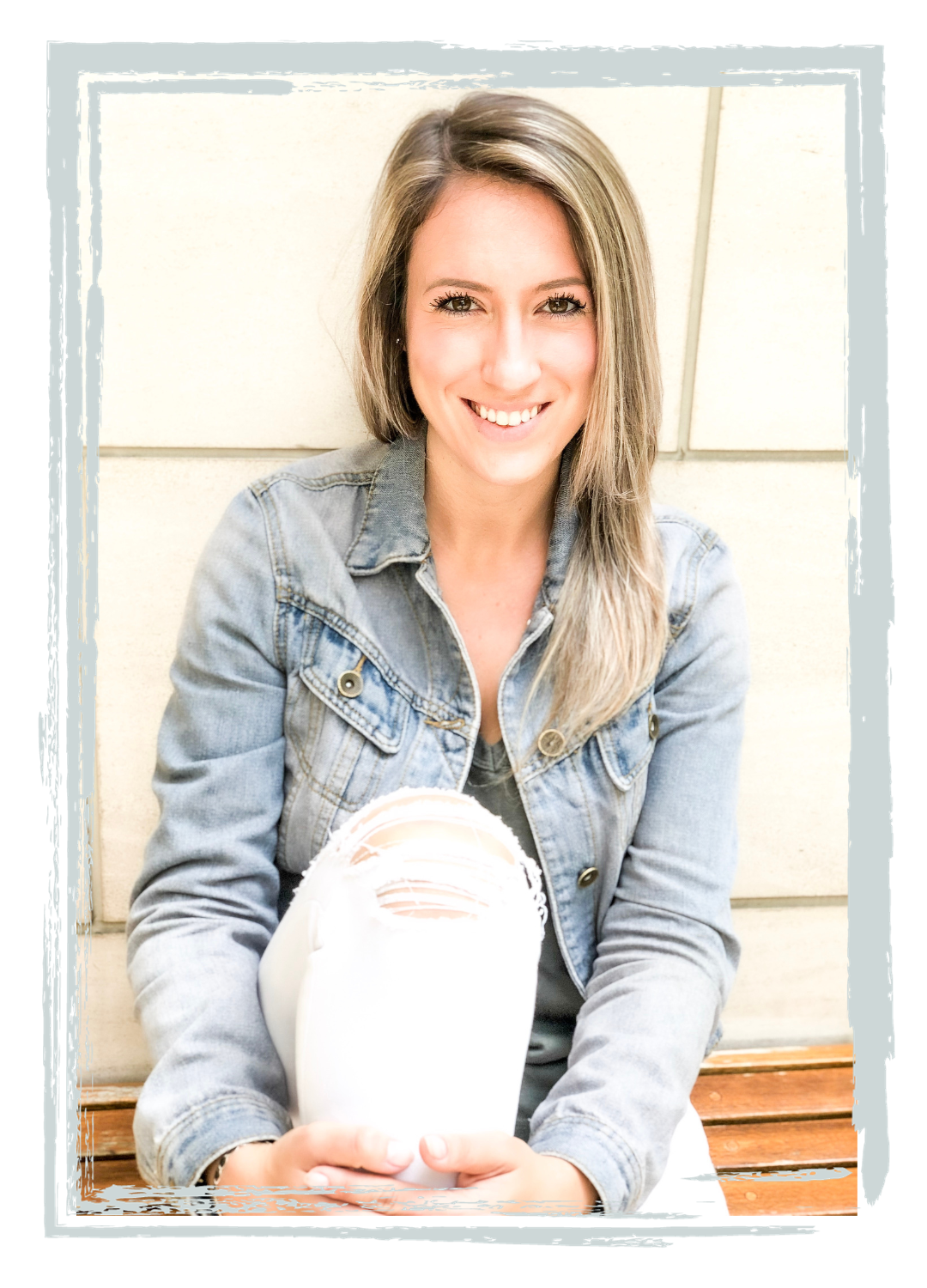
Julia Maria Nica
Life & Dream Coach
Julia grew up in Vancouver, B.C. She immigrated from Romania to Canada in the ’90s with her family. Julia decided to find her passion. Just like many women, she experienced her own self-image challenges. Spending years in personal development and business seminars. She came up with the idea of The YOU Series as a part of unraveling the pain of her life. Today she focuses on building The You Series, coaching her clients, and creating new content.








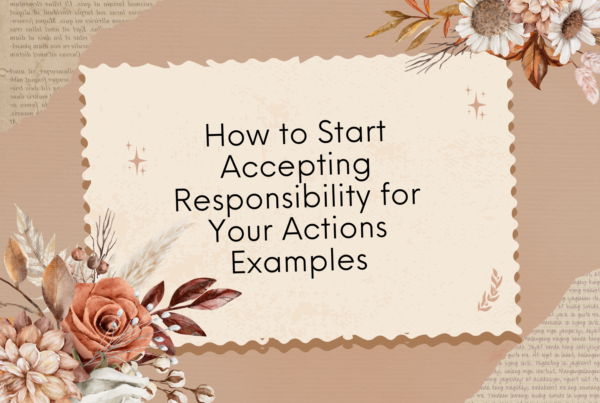
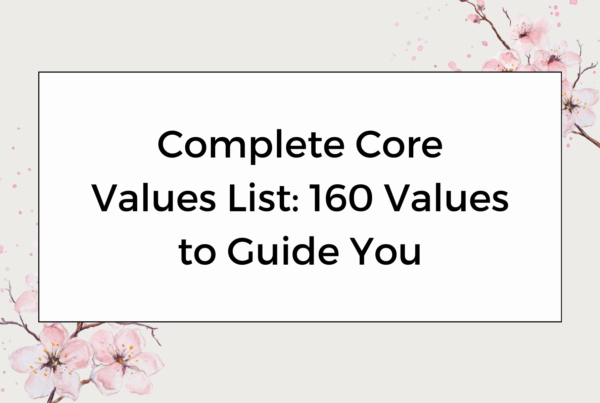
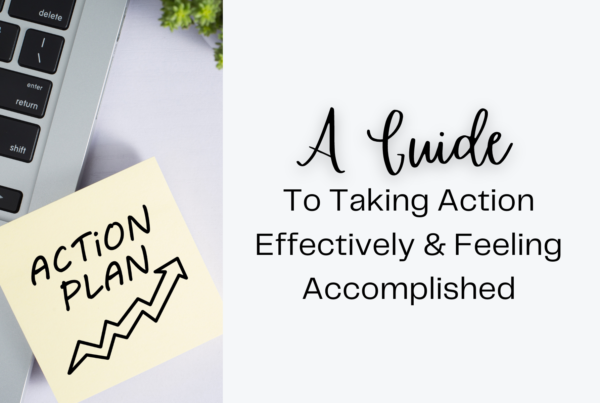
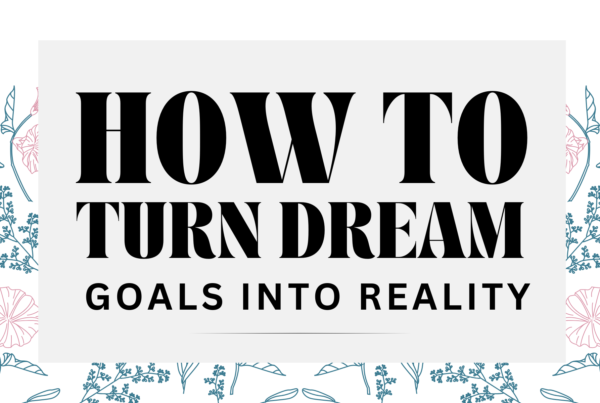
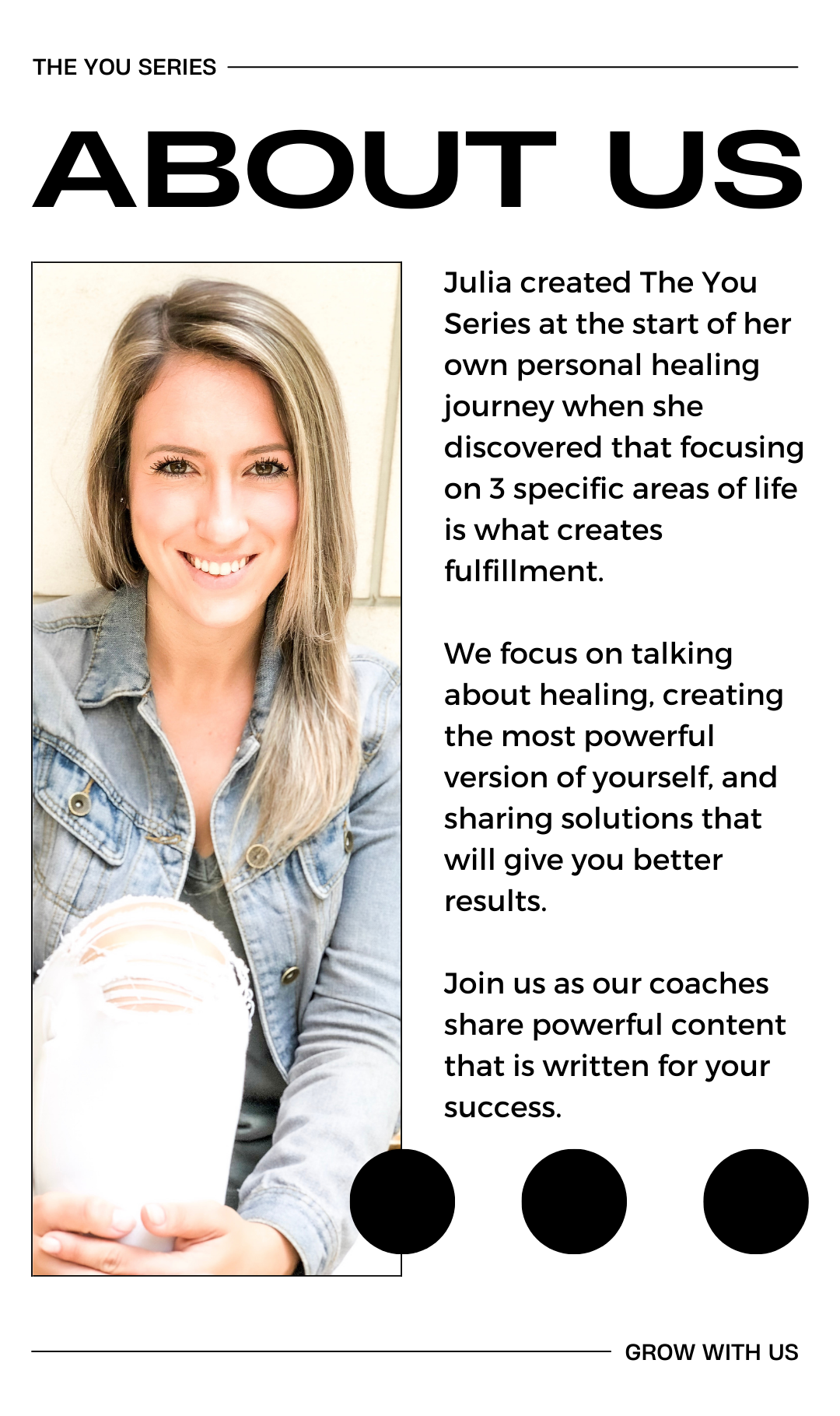







 Your reactions gi
Your reactions gi


